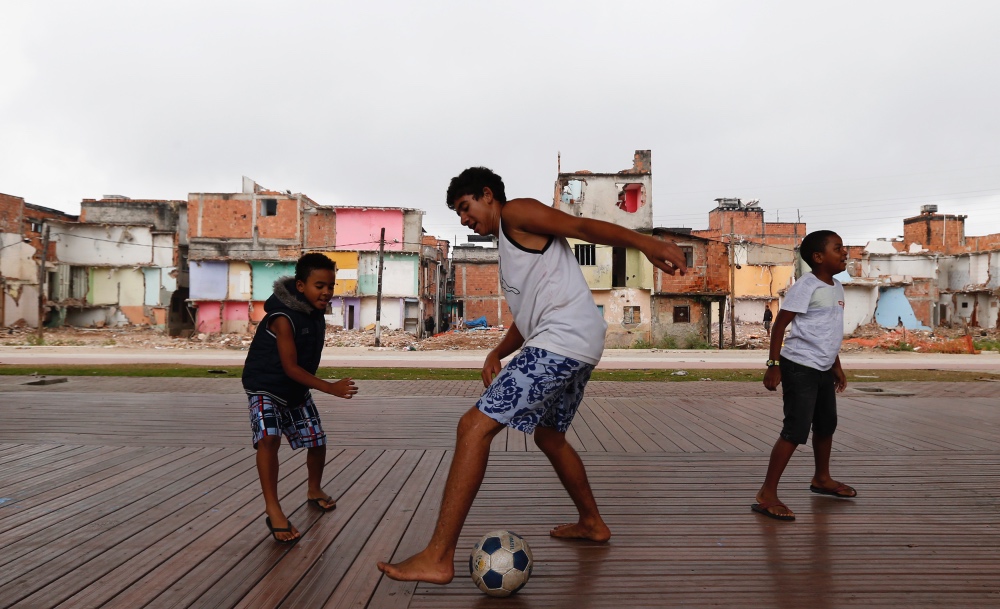Bogota, Colombia
Thomson Reuters Foundation
About 100 million people living in cities worldwide will likely fall into poverty due to the coronavirus pandemic, urban experts said on Wednesday, calling for mapping tools to identify vulnerable communities and investment focusing on slum areas.
Densely populated cities are poised at the frontline of the contagious outbreak, hard hit where people live in poverty with little or no running water, sewage systems or health care access, said experts at the World Bank, the World Resources Institute and other urban-study groups.

Children play soccer in the Manguinhos slums complex in Rio de Janeiro, Brazil, on 23rd July, 2013. PICTURE: Reuters/Stefano Rellandini
“Within cities we need to focus on those who need help the most, the poor and the vulnerable have been very seriously affected,” said Sameh Wahba, global director for the World Bank’s urban, disaster risk management, resilience and land global practice.
“Our estimate is that there will be possibly upward of a 100 million so-called ‘new poor’ on account of loses of jobs and livelihoods and income,” Wahba told a webinar with members of the media.
He warned that cities will see a drop of between 15 per cent to 25 per cent in tax revenues next year, making it difficult for authorities to invest in improving slum areas.
Many cities lack accurate data about slum areas, making it difficult to know where investments should be targeted, the experts said.
A World Bank mapping tool using artificial intelligence, high-resolution satellite imagery and three-dimensional images is helping cities find areas with communal water taps and toilets or where social distancing is impractical because of overcrowding, Wahba said.
So far the tool has been used to produce such maps for Cairo, Mumbai and Kinshasa.
Without data, government food and financial aid is not reaching slum areas where about one billion people live worldwide, said activist Sheela Patel.
“Whether you are a slum dweller, or a pavement dweller, a squatter or a homeless person, and if you are migrant, you are presently completely excluded from any form of entitlement in the city,” said Patel, head of the Society for the Promotion of Area Resource Centers, an Indian non-profit that campaigns for land and slum dweller rights.
Reaching vulnerable communities during and after the pandemic means recognizing how systems such as water, health, housing, transport and the economy are connected, said Ani Dasgupta, global director of the WRI Ross Center for Sustainable Cities.
Investments must ensure that systems are integrated and not be “simple top-down central projects,” he said.
“We have to learn from this,” said Dasgupta. “We actually have to do things differently.”






